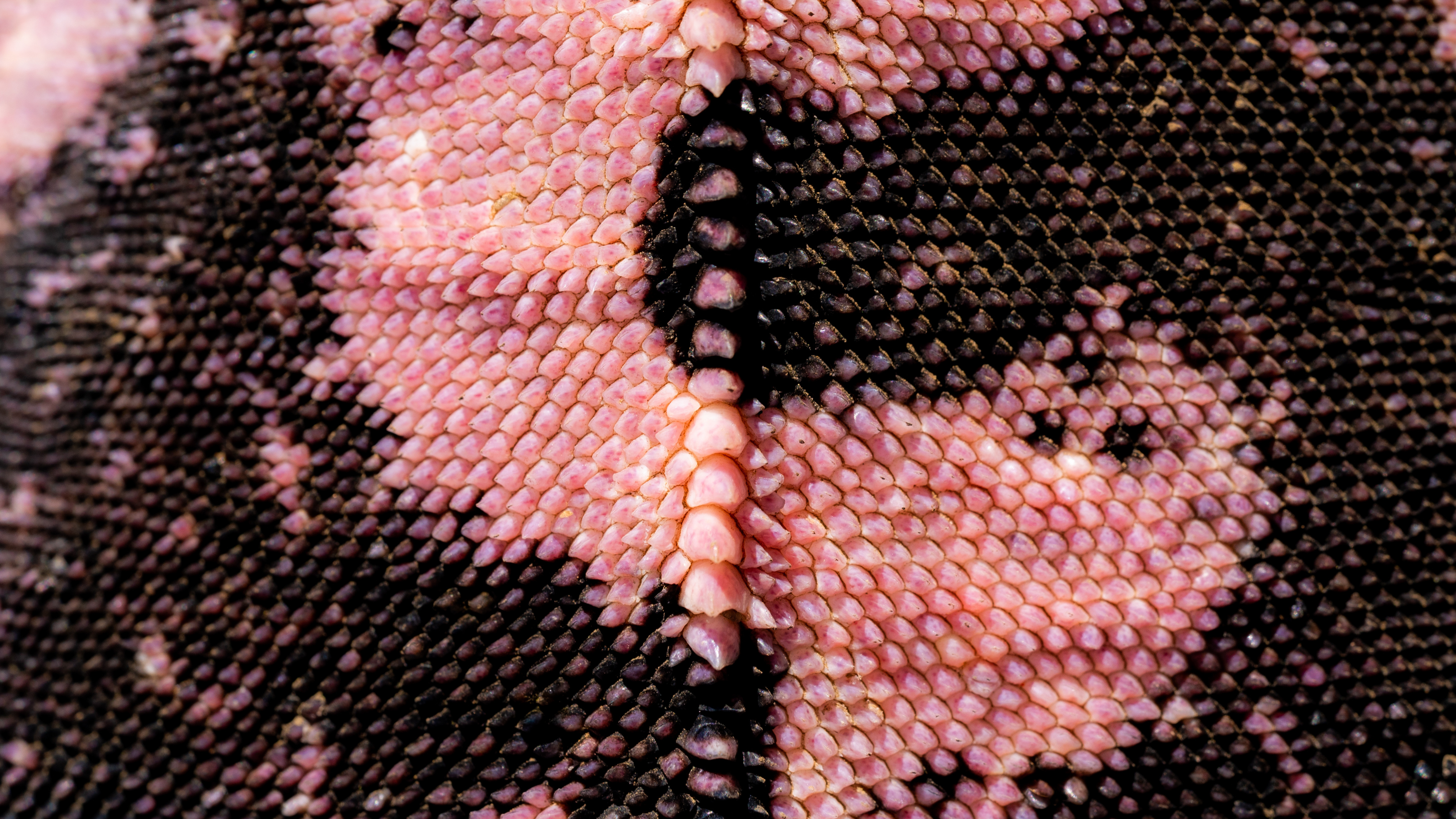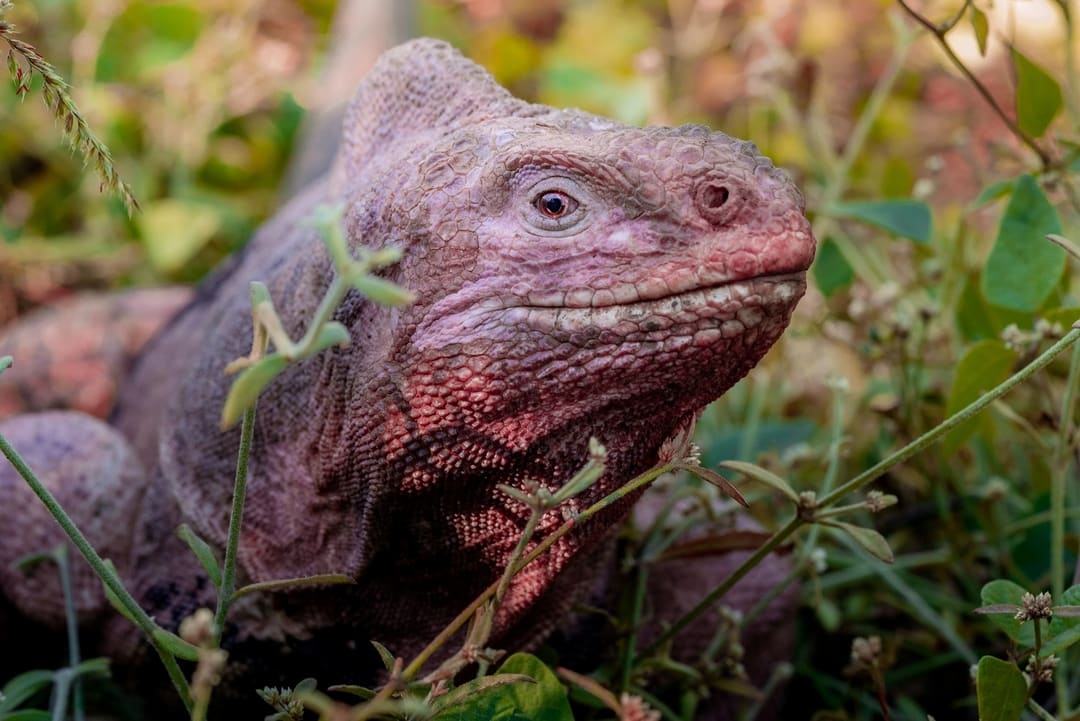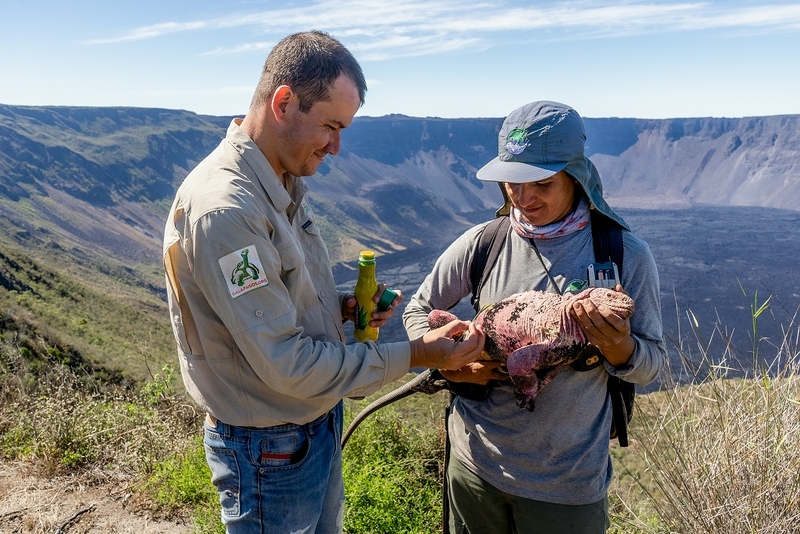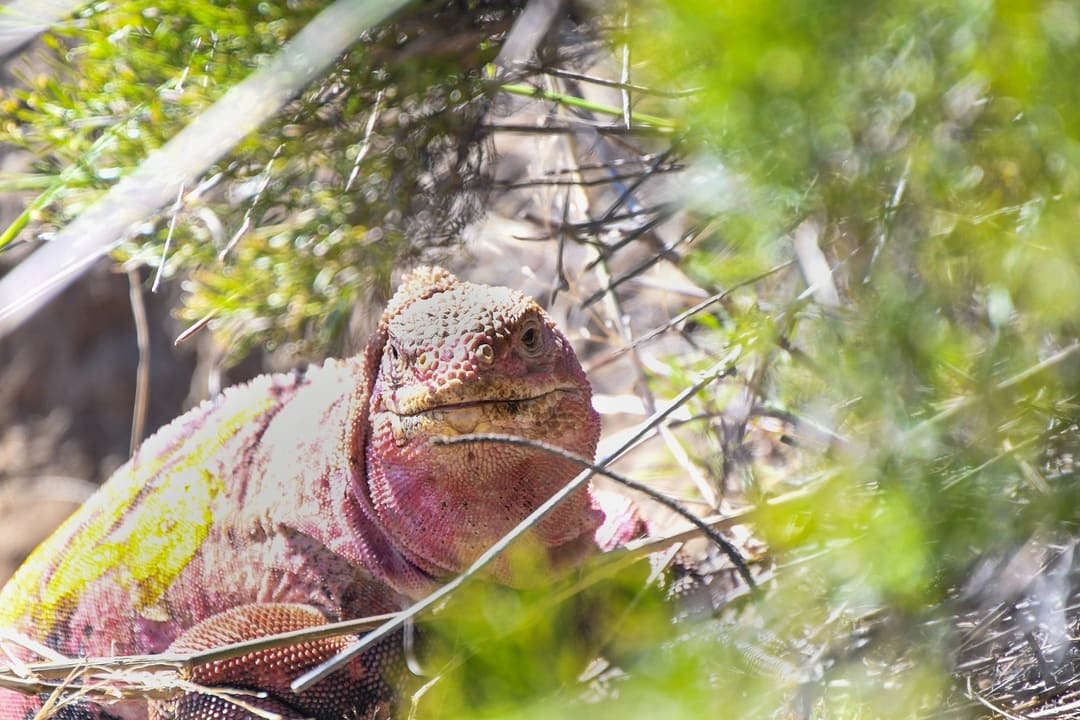Saving Pink Iguanas
On the remote slopes of Wolf Volcano on Isabela Island, the endemic Pink Land Iguana is teetering on the brink of extinction. With an estimated 211 individuals left in the world, urgent conservation action is needed to prevent the permanent extinction of one of the world’s most critically endangered species.
-
Featured Title
Wolf Volcano, Isabela Island
-
Project Launched
2021
-
Estimated Global Population
211
-
Partners
Galápagos National Park Directorate

Why It Matters
- Research suggests that Land Iguanas serve as "ecosystem engineers," modifying the habitat around them in a way that benefits their entire living community.
- As an ancient lineage that diverged from other land iguana species in Galapagos approximately5.7 million years ago, the Pink Land Iguana is one of the oldest known examples of evolutionary diversification in Galápagos.
- In 2012, the International Institute for Species Exploration named the Pink Land Iguana one of the most important new biological discoveries this century.
- Only one juvenile has ever been found. The existence of only adult Pink Land Iguanas is evidence of a massive decline in reproduction due to predation of eggs and hatchlings by invasive rats and cats.
- The Pink Land Iguana gets its distinct color from a lack of pigmentation in much of its skin, making the blood underneath visible and skin pinkish.
Our Impact

Project Goals
In collaboration with the Galápagos National Park Directorate, Galápagos Conservancy is launching a series of field expeditions to gather critical information to guide recovery of this remarkable species.
Progress
Our first expedition in early August 2021 revealed that the species is in dire need of conservation action. Thirty scientists and park rangers surveyed the population of Pink Land Iguanas across an area of nearly 1,000 acres on Wolf Volcano on Isabela Island, the only place in the world that the species inhabits. Using a mark-recapture method of population analysis, Galápagos Conservancy scientists have estimated the total number of Pink Land Iguanas at 211.


The Path Forward
Thanks to a collaborative international effort of scientists and conservation experts, there is hope. Immediately following the first expedition, a team of scientists and researchers came together to develop a conservation plan for the Pink Land Iguana. Strategic actions developed during the workshop, including a follow-up expedition to collect additional information on breeding and nesting behavior, construction of a permanent hut to serve as a base of operations for future fieldwork on the volcano, and control of introduced predators.
Get Involved
Take Action for Galápagos, Right Now
Our generous community of supporters is the cornerstone of our efforts to preserve this ecological wonder of the world.



More from Galápagos Conservancy
Keep Exploring
Our Efficiency
78%
Direct conservation and grants investments
18%
Fundraising
6%
Management








